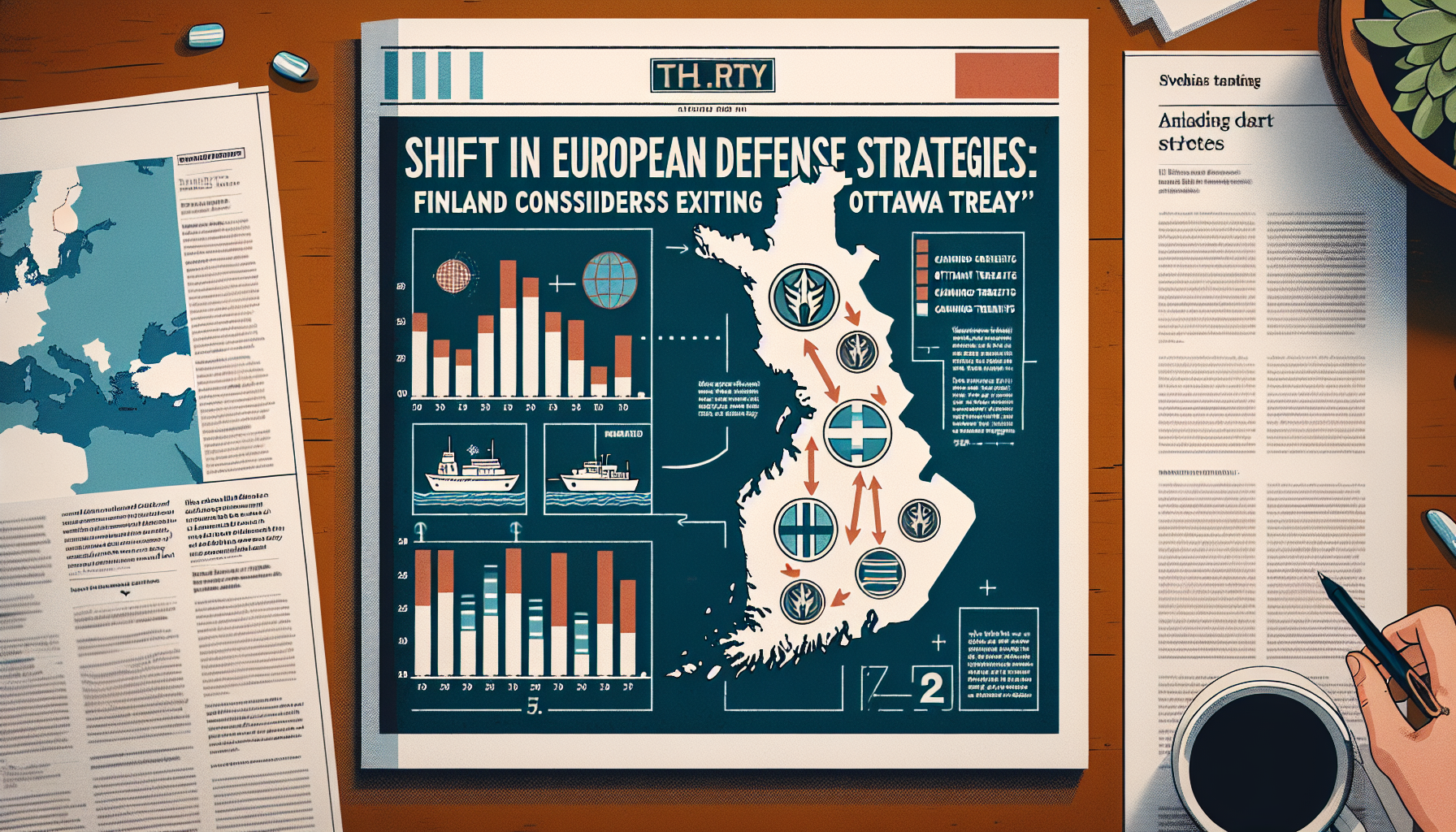Finland’s Potential Exit from the Ottawa Treaty: Implications for Global Security
Finland is reportedly considering withdrawing from the Ottawa Treaty, an international agreement banning anti-personnel landmines. This move follows similar announcements from Poland and the Baltic states—Estonia, Latvia, and Lithuania—raising concerns about a shifting stance on landmine regulations in Europe. The potential exit reflects growing security anxieties amid the ongoing Ukraine war and heightened tensions with Russia. This article explores the reasons behind Finland’s decision, its geopolitical implications, and what it means for global disarmament efforts.
Understanding the Ottawa Treaty
The Ottawa Treaty, formally known as the Mine Ban Treaty, was adopted in 1997 to prohibit the use, stockpiling, and production of anti-personnel mines. Over 160 countries have joined the agreement, committing to humanitarian disarmament and mine clearance efforts. However, major military powers like the U.S., Russia, and China have not ratified the treaty, citing national security concerns.

Why Finland May Withdraw
Finland, historically a neutral nation, has maintained a cautious defense policy. However, Russia’s invasion of Ukraine has drastically altered its security calculus. Key reasons for Finland’s potential withdrawal include:
- Border Security: Finland shares a 1,340-kilometer border with Russia, making landmines a strategic deterrent.
- Military Preparedness: With NATO membership now secured, Finland seeks to bolster its defensive capabilities.
- Regional Alignment: Following Poland and the Baltics, Finland may view landmines as a necessary defense tool.
Geopolitical Consequences of the Move
If Finland exits the treaty, it could signal a broader European militarization trend. Countries near Russia may increasingly prioritize territorial defense over disarmament commitments. This shift could:
- Undermine global landmine ban efforts.
- Strain diplomatic relations with treaty-supporting nations.
- Encourage other nations to reconsider their participation.
Humanitarian and Environmental Risks
Landmines cause long-term harm, often killing or injuring civilians decades after conflicts end. Finland’s withdrawal could lead to:
- Increased civilian casualties in conflict zones.
- Environmental damage from unexploded ordnance.
- Higher costs for post-war demining operations.
Market and Defense Industry Impact
A potential Finnish exit could benefit defense contractors specializing in landmine production and border security technologies. Companies in Europe and North America may see increased demand for:

- Advanced mine-laying systems.
- Surveillance and detection equipment.
- Counter-mine robotics.
Investor Considerations
Defense stocks, particularly those tied to landmine manufacturing, could experience volatility. Investors should monitor:
- Government contracts in Finland and neighboring nations.
- Regulatory changes in international arms treaties.
- Geopolitical developments in Eastern Europe.
Conclusion: What This Means for the Coming Weeks
Finland’s potential withdrawal from the Ottawa Treaty reflects deepening security concerns in Europe. If finalized, this decision could accelerate militarization trends, reshape defense budgets, and impact global disarmament efforts. In the short term, markets may react to defense sector shifts, while humanitarian organizations could ramp up advocacy against landmine use. Investors and policymakers should closely track Finland’s next steps, as they may set a precedent for other nations reassessing their treaty commitments.

